Yesterday, an article was published in Nature (Nutman, et al. 2016) announcing the discovery of what may be the oldest macroscopic fossils on Earth, some microbialites that show stromatolite-like internal layering. They were found in 3.7 Ga rocks in Isua, Greenland.
The photos I’ve seen of the newly described Greenland structures look pretty compelling. It’s a nice coincidence for me, since last week I saw some of the oldest macroscopic fossils in Africa – microbially-induced sedimentary structures (MISS) in the Moodies Group clastics from the Barberton Greenstone Belt (not carbonates, which would be necessary for them to be stromatolites, sensu stricto). The MISS are preserved as kerogen – indicating that they used to be biological carbon. They don’t show domal structure. The geologists leading our field trip, Christoph Heubeck, Gary Byerly, and Don Lowe, refer to them as “crinklies” because this is what they look like in cross-section:

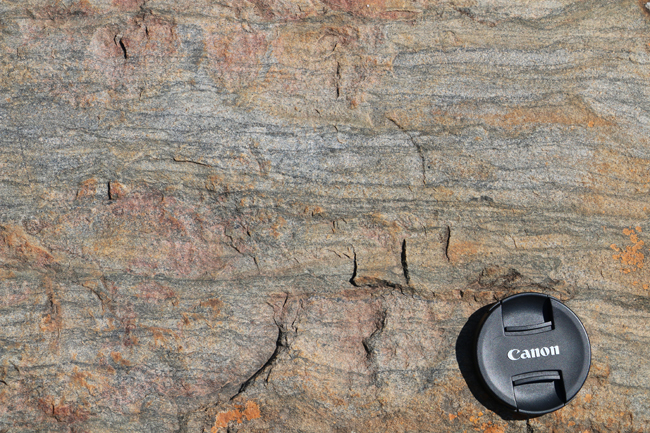
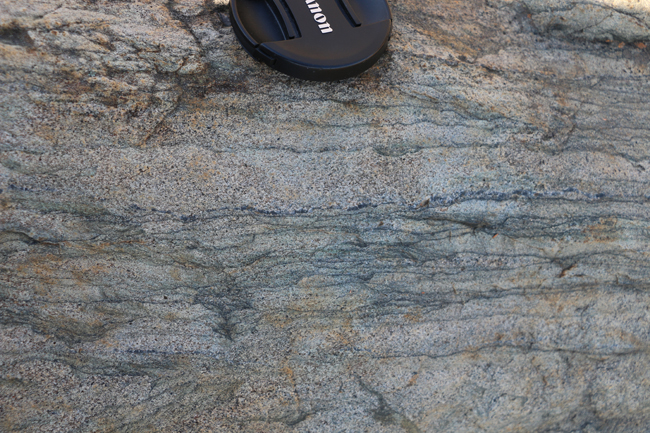
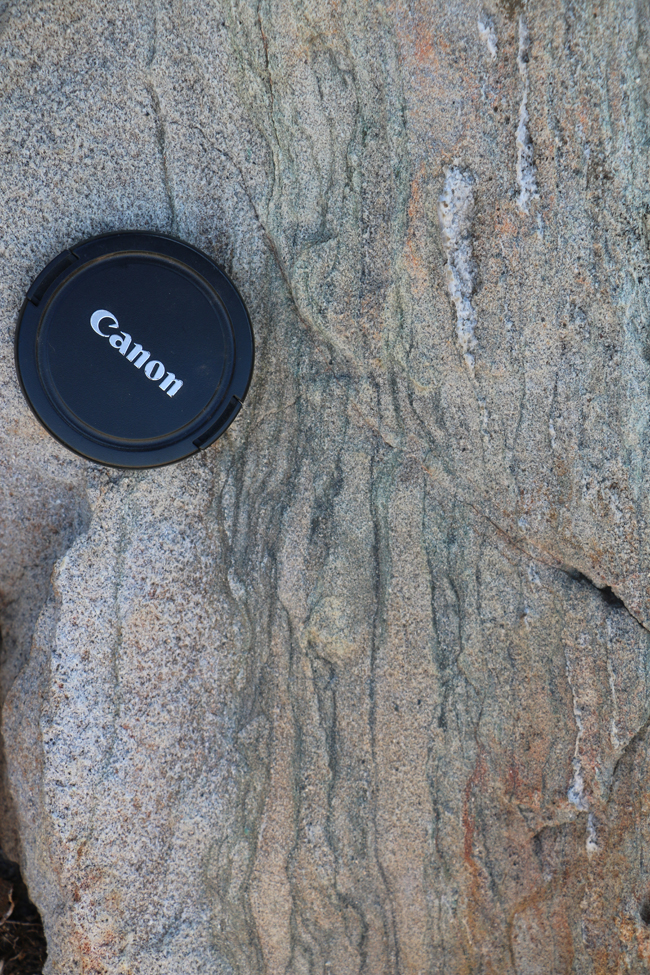
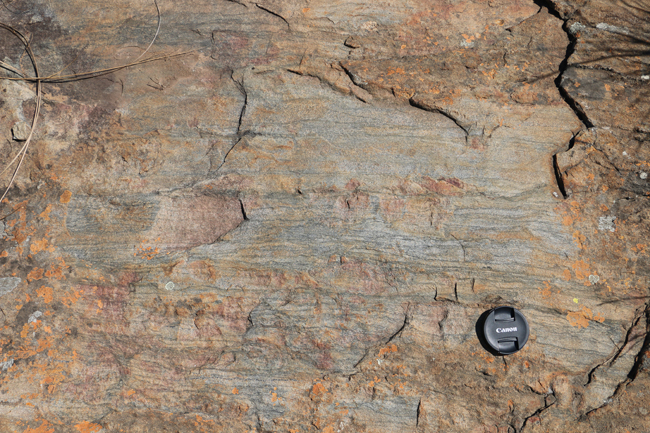
The sedimentas are apparently fluvial sandstones and conglomerates, and there were a few cases where we could see the relationship between the mats and large clasts like this chert cobble:
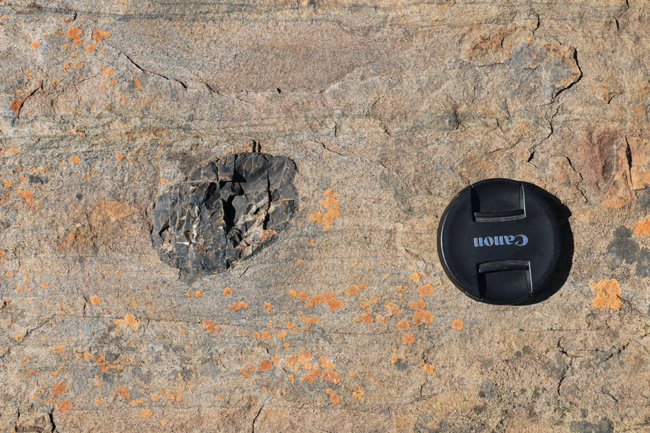
This one is fairly extraordinary – a ripple train draped in microbial mats; cut I think at an oblique angle (making the high apparent amplitude):
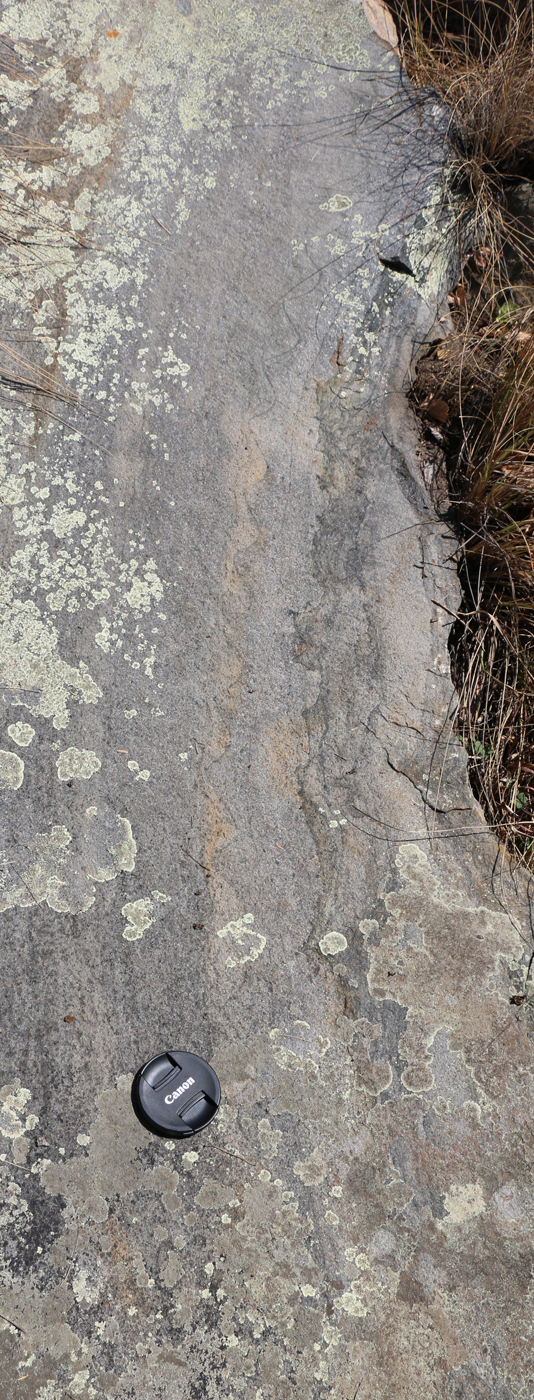
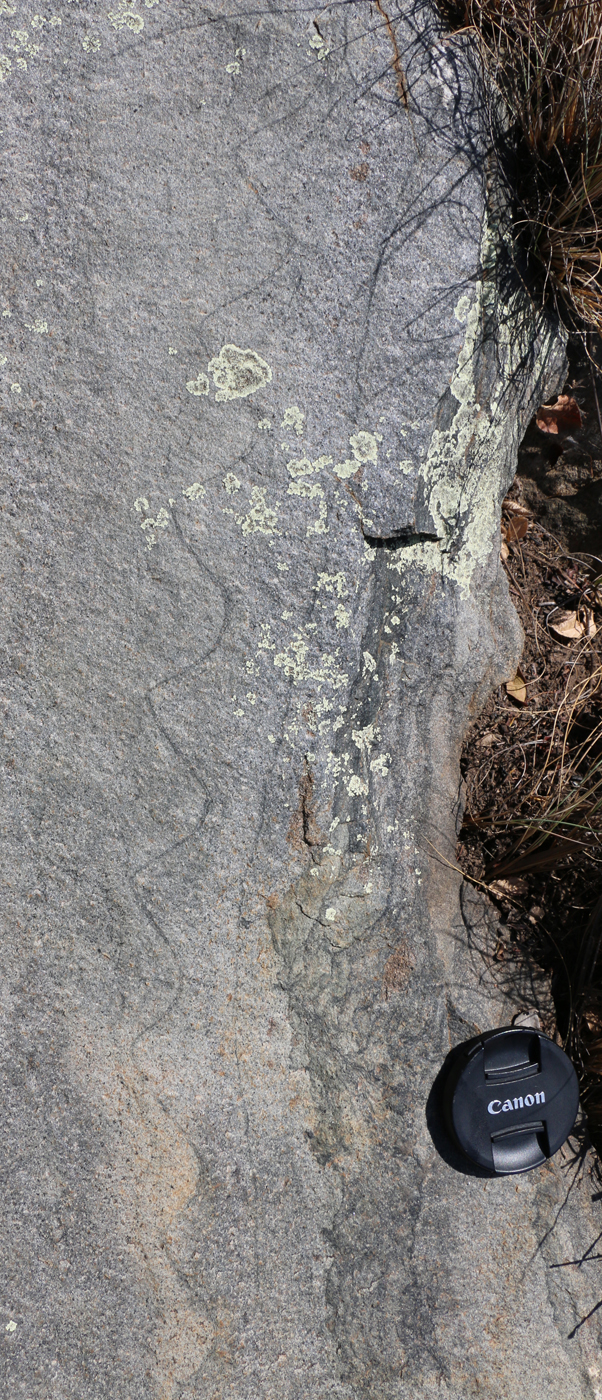
I GigaPanned the Moodies MISS at six sites on a plateau where they are reasonably well exposed. While these are merely 3.22 Ga in age, I’ll venture to guess that the imagery below represents more pixels of MISS imagery than have been recorded anywhere else.
Enjoy checking them out. For me, visiting these rocks of the Moodies Group was inspirational – these slimy biofilms are the oldest evidence of life that I’ve ever seen, in the field or in the hand.
*If you’re having issues viewing the GigaPans here embedded in the blog post, then just click the “link” link after each one to visit its GigaPan page.
Link GigaPan by Callan Bentley
Link GigaPan by Callan Bentley
And now some variations on the theme…
Fluid escape structure disturbing the microbial mats:
Link GigaPan by Callan Bentley
Microbial mats draped over a rounded chert cobble:
Link GigaPan by Callan Bentley
Conglomeratic layer with microbial mats draped over cobbles and a fluid escape structure:
Link GigaPan by Callan Bentley
Channel cross-bed with microbial mats coating the foreset laminations:
Link GigaPan by Callan Bentley
Slab sample:
Link GIGAmacro by Callan Bentley
Lastly — your lagniappe — here’s a baboon who watched me warily when I first climbed up onto the plateau where the MISS are exposed:

…I guess the next stop for me is going to have to be Greenland! 🙂
